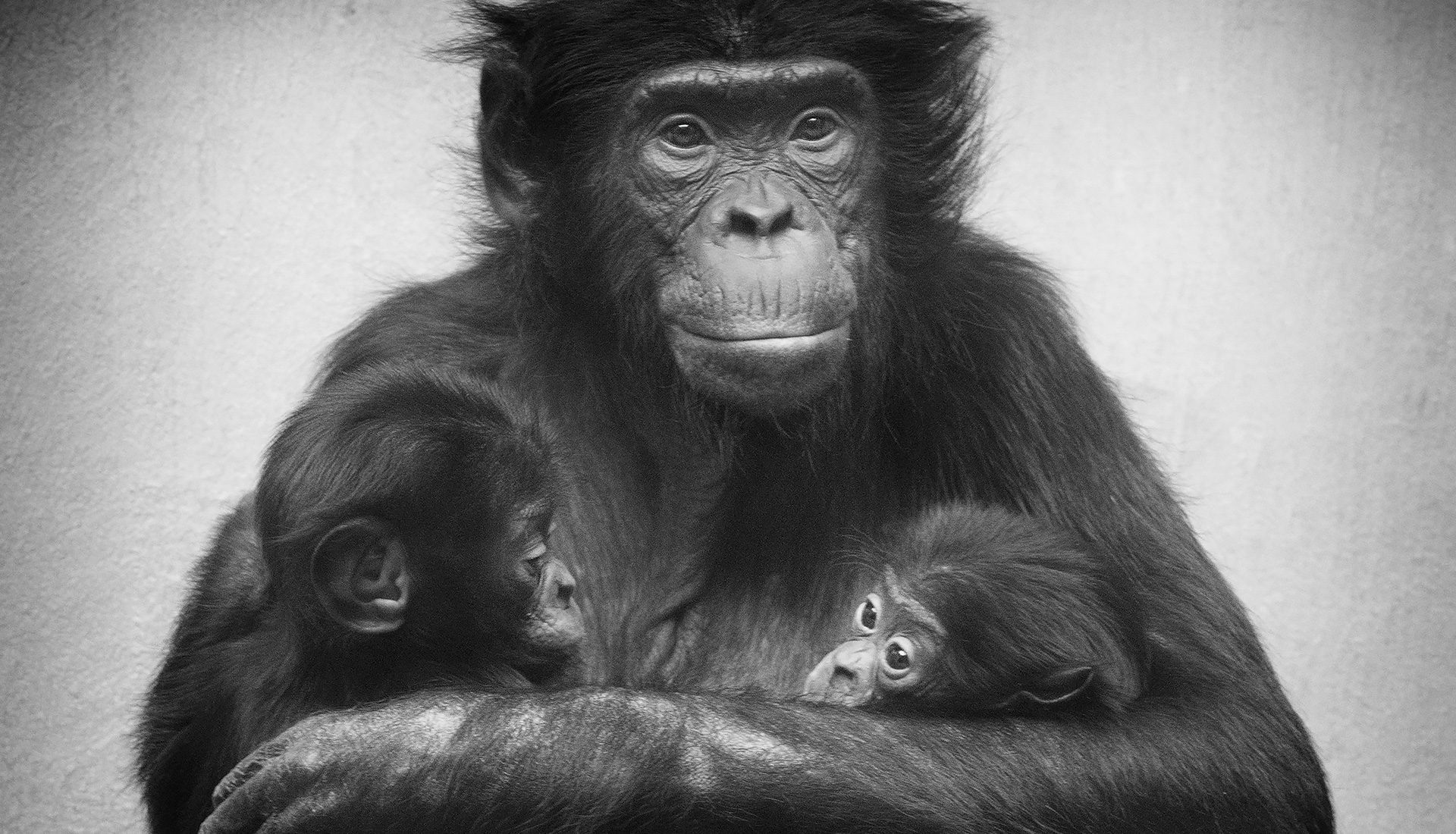At a glance
As so-called dry-nosed primates, we humans belong to the same order as over three hundred other primate species. Like us humans, they are characterised by their high intelligence, the use of tools, social rules and rituals, close friendships, complex communicative understanding, multi-layered learning processes and great sentience. Despite strong similarities, they have no rights compared to us and have no self-determination in our society.
The initiative «Basic Rights for Primates» was launched by Sentience in 2017 to counteract this. It called for limited rights for all non-human primates in the canton of Basel-Stadt, Switzerland, to be anchored in the constitution: the right to life and the right to physical and mental integrity. For the first time in the world, an electorate was allowed to democratically vote on whether non-human animals should be granted basic rights.
On 13 February 2022, after some detours up to the Federal Supreme Court and much pioneer work, about a quarter (25.26 per cent) of the people of Basel, as well as Basel’s left-wing parties, including the SP and the Green Party, said yes to extending the concept of fundamental rights to non-human primates. Newspapers, television and radio stations in over 18 countries reported in more than 300 media articles and features on the new ground in the animal rights debate that was broken by Basel with this historic vote.
Although it was not enough for the initiative to be adopted, the large response shows how topical and important the issue is. Through the media discourse, many people have been confronted with the issue of animal rights for the first time and realised that, despite animal protection legislation, we still systematically place ourselves above the interests of all non-human animals – not only in Switzerland, but globally. A shift in thinking in this regard is more urgent today than ever before, given the massive exploitation of other animals and nature.
Systemic changes rarely succeed at the first attempt, but need persistence and diligence. Despite the rejection, the Primate Initiative was a prelude to a stronger awareness and weighting of the interests of other animals with whom we share our planet. This partial success is due to the many dedicated visionaries, politicians and volunteers who stood up for our closest relatives, the non-human primates. The fight for the rights of non-human animals continues.
Supporters

«Chimpanzees, other primates and numerous other animals are sentient and intelligent beings. They deserve our respect.»

«Genuine humanity means extending the circle of fundamental rights holders in the right to life and in the right to physical and mental integrity to non-human primates.»

«With this vote, we have the unique opportunity to protect the most elementary interests of other sentient creatures as well. Ethics and political philosophy agree that we should do so. I wish the people of Basel the courage to take a small step with their vote to make a big difference for non-human primates.»
